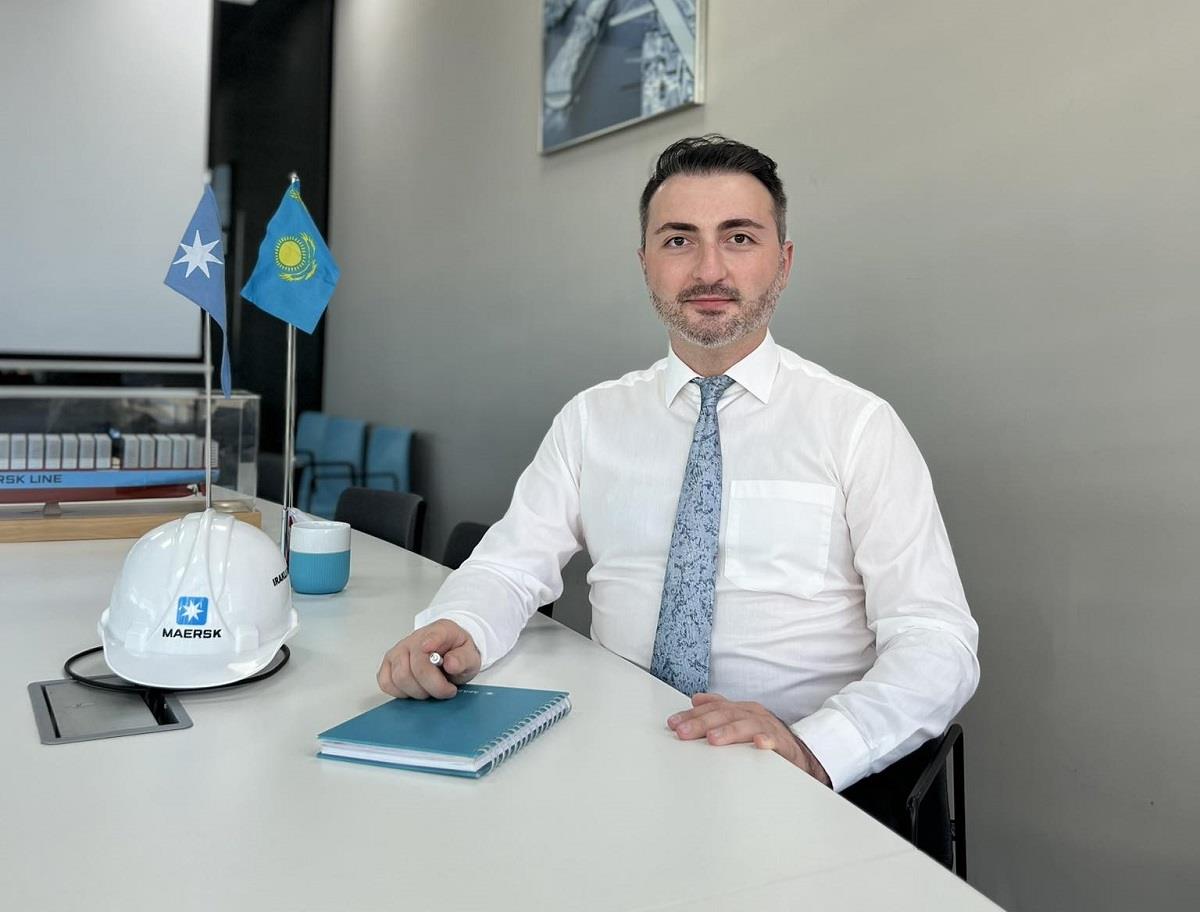
Local Markets In Azerbaijan, Central Asia At Center Of Maersk's Middle Corridor Focus - Irakli Danelia (Exclusive Interview) (VIDEO)
"We are also working closely with Chinese counterparts toestablish a competitive and efficient corridor for local customers,regional clients, and international companies. Our objective is tofacilitate seamless transportation services from east to west, witha particular emphasis on supporting and enhancing logisticalsolutions for local markets," he said.
According to the development manager, previously, Maersk's mainfocus was on transit cargoes between China and Europe. However, nowthe company has expanded its focus to include local markets such asAzerbaijan, Kazakhstan, Uzbekistan, Turkmenistan, and others.
"In September 2023, we officially launched the ocean-railconnect product, which provides connectivity for Central Asiathrough the Poti seaport, spanning Georgian, Azerbaijani, andKazakhstani territories, reaching Uzbekistan and Tajikistan, we are developing direct solutions from China toCentral Asia. Thus, the Middle Corridor initiative is a focal pointfor us, encompassing both the Western and Eastern ends of thecorridor," Danelia noted.
He pointed out that, currently, Maersk has strategic cooperationagreements with countries including Kazakhstan, Azerbaijan, andGeorgia.
"This means we are planning to shift our regular businessoperations to this corridor, which will undoubtedly support themacroeconomic development of these countries and enhance thepotential of logistical services in Central Asian and Caucasiancountries. When it comes to logistics, our focus is not solely ontransportation from point A to point B. Instead, we aim to provideadditional services such as first-mile and last-mile solutionswithin these countries. This approach signifies our commitment todeveloping the corridor and the countries involved from acomprehensive logistical perspective," he explained.
Danelia further noted that Maersk collaborates with all seaportsalong the Middle Corridor, including Baku, Alat ports (bothAzerbaijan), and Aktau port (Kazakhstan). "Each port determines itsown capacity, and as a contributor to the Middle Corridor, we willsupport them with our cargo flows. This benefits all partiesinvolved".
According to him, when Maersk supports railway companies withtheir cargo flows, it also indirectly supports the performance ofseaports.
"Increasing cargo flows within the corridor is our shared goal,leading to success for our businesses, both ours and theirs, withmore scale, more efficiency, and thus more reliability. We are opento discussing and identifying ways to further contribute toinitiatives from ports like Alat Port. Currently, this is thesolution available to us, and we actively utilize Alat Port for ouroperations," he said.
Danelia noted that Maersk is primarily focused on developing theMiddle Corridor through ports.
"For exports, we transport cargo from Central Asia andAzerbaijan by rail to Poti, a process we have been carrying out fordecades. From Poti, the cargo can be shipped directly to variousdestinations worldwide, including Türkiye, Europe, Africa, the FarEast, and the Americas. The same process applies for imports," hesaid.
The regional manager pointed out that the demand for the MiddleCorridor is steadily increasing.
"This demand primarily stems from Caucasian countries seeking totransport cargo from China through the Middle Corridor to Baku. Wehandle significant volumes of containers from China to variousdestinations such as Baku, Georgia, Türkiye, and further intoEurope. Additionally, there is growing interest from Japan andKorea in connecting through China to the Middle East and deliveringto Caucasian countries and Europe. Furthermore, we are also focusedon export-import flows from Central Asia, with the Middle Corridorserving as a crucial route," Danelia said.
Further speaking, Irakli Danelia noted that Maersk believes theMiddle Corridor will establish a strong position in the West-Eastand vice versa logistical system, facilitating seamless tradebetween regions.
The official pointed out that the demand for the Middle Corridoris steadily increasing, stemming from Caucasian countries seekingto transport cargo from China through the Middle Corridor toBaku.
"We handle significant volumes of containers from China tovarious destinations such as Baku, Georgia, Türkiye, and furtherinto Europe. Additionally, there is growing interest from Japan andKorea, connecting through China to the Middle East and deliveringto Caucasian countries and Europe. Furthermore, we are also focusedon export-import flows from Central Asia, with the Middle Corridorserving as a crucial route," Danelia explained.
Maersk's main focus is on delivering containerized cargoes,therefore, the company collaborates with cargo owners, transport,and logistical companies locally to handle already containerizedcargo, he noted.
"Additionally, we are actively encouraging exporters in theregion to containerize and convert their bulk commodities,highlighting the advantages of containerization," Daneliaadded.
Regarding the World Bank's report and EBRD's research, Daneliapointed out that it is indeed relevant and realistic to considerthe costs involved.
"However, the implementation of such initiatives depends on thewillingness of markets to act swiftly, as time is of the essence inthis matter. The primary focus should be on converting export bulkcargo into containerized shipments. This involves rapidlyincreasing the use of containers, with the goal of optimizing cargohandling," he said.
Maersk believes that all industry stakeholders should dedicatetime and efforts to this endeavor, as it is crucial yetchallenging, he added.
"In Central Asia, the majority of exported goods aretraditionally transported in bulk. Therefore, there is a need toraise awareness about the advantages of containerization, whichinclude standardization and streamlined operational processes, stakeholders should emphasize the economic benefitsof containerization, especially within a multimodal transitcorridor like the Middle Corridor," Irakli Danelia said.

Legal Disclaimer:
MENAFN provides the information “as is” without warranty of any kind. We do not accept any responsibility or liability for the accuracy, content, images, videos, licenses, completeness, legality, or reliability of the information contained in this article. If you have any complaints or copyright issues related to this article, kindly contact the provider above.






















Comments
No comment